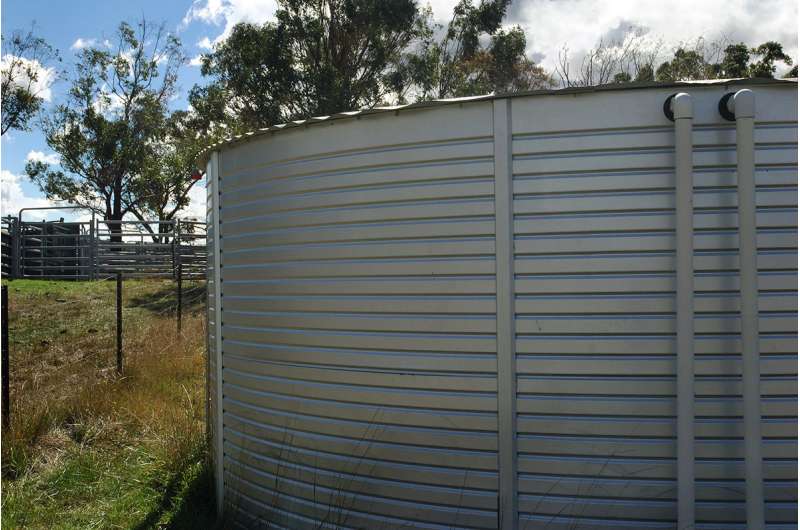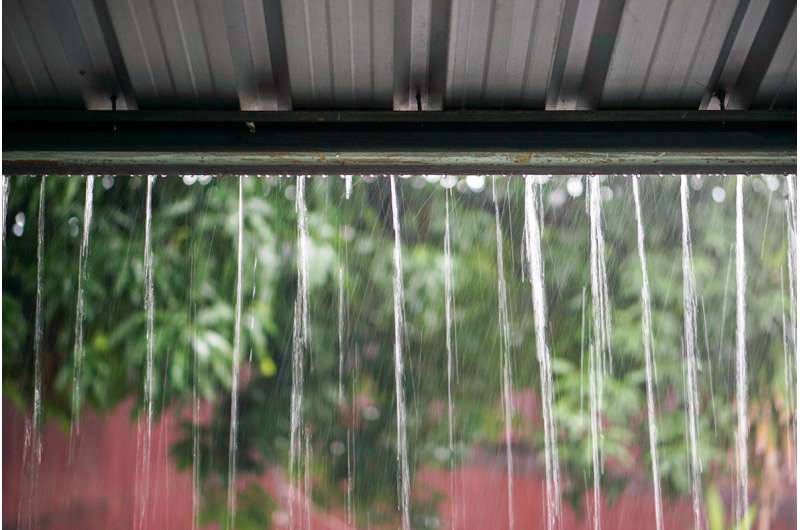Clean tanks reduce microbial risk

Simple measures such as regular maintenance of backyard tanks and rooftops can help reduce microbial contamination of household rainwater, Flinders University experts say.
Ahead of the rainy season, they advise homeowners to consider cleaning gutters and tanks and also get a first-flush diverter and install mosquito-proof mesh on any of the tank openings.
The advice follows a selective study of 53 rainwater tanks across metropolitan Adelaide which found more than 50 percent contained E. coli bacteria.
The presence of E. coli in water is a strong indication of recent sewage or animal waste contamination, and sewage may contain many types of disease-causing organisms.
While the South Australian Health Department advises that rainwater is safe to drink unless it has a colour or odour, the Australian drinking water guidelines state that there is no acceptable level of E. coli.
"We found that 53 percent, or 28 of the 53 rainwater tanks we sampled, contained E. coli while 10 tanks contained E. coli at concentrations exceeding the guideline limit for recreational water quality (150 MPN/100 mL)," says Dr. Kirstin Ross, senior lecturer in environmental health at Flinders University.
"These results are consistent with other studies conducted across Australia."

The Flinders University researchers set out to investigate the potential contamination of rainwater by microorganisms.
"These findings do not necessarily mean that the water is unsafe," adds Dr. Ross, who points out Australian drinking water guidelines are very conservative.
"As well, a previous study into the incidence of gastro in children who drank rainwater compared with those who drank mains water and found no significant difference in the incidence of illness.
"Nevertheless we do warn that vulnerable populations, such as the elderly and the immune-compromised, are at greater risk and we suggest they should consider not drinking rainwater."
Researchers say further research is needed to investigate the presence of other pathogenic microorganism and the potential for them to be removed by filters.
"Microbiological Values of Rainwater Harvested in Adelaide," by CE Chubaka, H Whiley, JW Edwards and KE Ross, Flinders University, is published in the journal Pathogens.
More information: Chirhakarhula Chubaka et al. Microbiological Values of Rainwater Harvested in Adelaide, Pathogens (2018). DOI: 10.3390/pathogens7010021
Provided by Flinders University

















